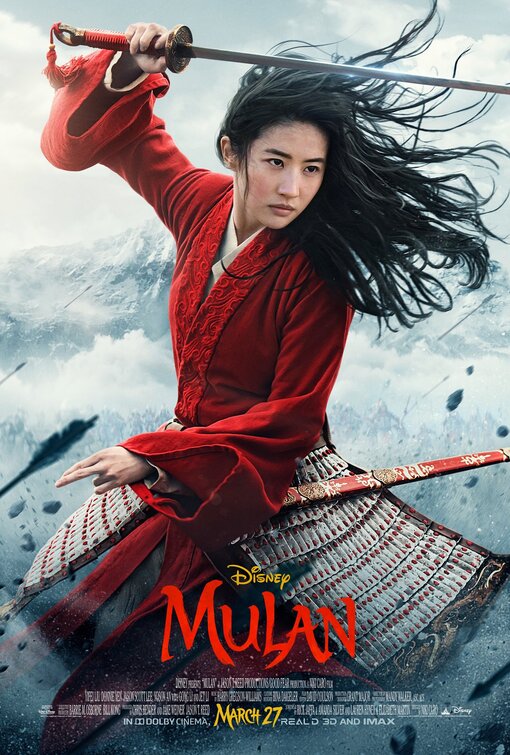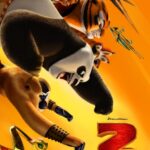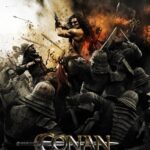Loyal. Brave. True.
Director
Niki Caro
Starring
Liu Yifei
Jason Scott Lee
Gong Li
Donnie Yen
Tzi Ma
To battle the invading Rouran force, led by the warrior Bori Khan [Lee] along with a shapeshifting witch (Xian Lang played by Gong Li), the Emperor of China [Jet Li] issues a decree that each household must send one man to enlist in the army. Having two daughters, ageing veteran Hua Zhou [Ma] is expected to sign up but will likely perish in the fighting. To save her father, Zhou’s eldest daughter Mulan [Liu] steals his armour and sword before making her way to the frontline, posing as a man: Hua Jun.
Mulan remains a fantastic piece of Disney animation history and a strong step forward in female led representation, outside of the damsel in distress role, as well as a point of note for the LGBTQ+ community. By comparison, this remake is remarkably dull, sterile and disappointingly generic, taking twenty minutes to convey what the animated version got across more effectively in three.
One thing the film has going for it, is that it can be undeniably pretty at times. A vibrantly designed, lavish production which is rich in colour and construction. The costumes, hair, make-up and sets are all beautiful, demonstrating real crafting excellence. Having said that, for all these positives, they are admittedly very surface level and upon closer inspection, it’s a pretty sloppy mesh of anachronisms and insensitivities.
An Asian-American friend of mine wrote an article when the trailer dropped last year, highlighting a very small but impactful decision made which shifts the entire people of the story, on top of this, it was later revealed that outside of the cast, there were practically no Asian advisors for the aforementioned praised production elements; which shows if you know anything of Chinese history or culture. I will admit, using the term Rouran rather than Mongolian feels like there was a semblance of research done and there is an attempt to reference the original Ballad Of Mulan with the hares running side by side but without enough explanatory dialogue, it is little more than a throwaway wink to the knowing members of the audience.
As stated earlier, the craftsmanship is undeniably good but the film lacks a specific identifiable time period which ends up feeling like a flick-book collection of historical influences. Some could argue this is perfectly acceptable for a fantastical family action film and historical accuracy shouldn’t be at the forefront of any critical analysis but I would say that’s a line of thinking which is a dark path to the likes of King Arthur: Legend Of The Sword and Robin Hood.
I also think Harry Gregson-Williams’ score work is strong enough with tracks like Four Ounces Can Move A Thousand Pounds, Mulan Leaves Home and The Charge in particular adding a bit of contemporary gravitas to the proceedings. Having said that, people have a lot of fondness for the songs and motifs of the original and it’s a hard legacy to inherit from stellar composer, Jerry Goldsmith, who produced absolutely cheerful, spirited and heartfelt themes, imbued with a sense of adventure. The choice to not make this film a musical feels like a fairly logical one and I have to commend the incorporation of the 1998 songs into the score.
The editing, however, didn’t fare nearly as well. The introduction was hideously lopsided – like an unhappy committee constantly reshuffling the opening line of a book without looking any further into the text – and while this slowly improves as the story continues, there are completely jarring moments that throw all of this out the window. A prime example is a replication of an iconic scene from the animated film. At the story’s halfway point, a large battle is taking place at the foot of a mountain range. Xian Lang uses her powers to morph into a flock of birds, causing the army to form up into clusters. This then gives the Rouran the opportunity to launch catapult attacks. Mulan, separated from the shielded groups, manages to flank the attackers and fires arrows from behind, forcing them to turn the catapult and (without aiming properly) hit the mountainside, causing the avalanche.
It’s a subtle change to the animated events but it’s one that makes the enemy dumber and make Mulan less of a bold tactician. What’s more so many connective moments within this sequence are missing, with the action advancing so far forward as to feel like Mulan must have teleported or turned invisible to sneak past. And this isn’t a solo offence, this happens at various points, often to the detriment of an emotional impact. Mulan’s iconic suiting up in her father’s armour scene, cutting her hair and preparing for war is reduced to removing a sword from its stand and turning, already clothed in armour. If there was ever a scene that should have been directly lifted from the animation it was this one.
Again, giving the film due credit, this is an entirely Asian cast (if one were to include Western Asia) and that is a genuinely welcome sign and the majority perform admirably enough with what they are given. In spite of this, Liu Yifei wasn’t a fantastic Mulan. There weren’t a lot of androgynous men cast so her physique stood out no matter how much dirt they put on her and despite the weight and importance of the events at hand, she felt remarkably wooden. I don’t know if this was a language barrier issue or the script or the direction but considering how creditable she was in The Four trilogy (wherein she plays a character called Emotionless) and most notably Once Upon A Time, I was genuinely surprised what we ended up with was rather gauche.
For the majority of the runtime, Mulan’s only real supports are her fellow soldiers but they all fall into fairly standard tropes and we don’t spend much meaningful time with them to the degree that they aren’t specifically named well (bar the love interest or the weak one, who is constantly derided). What’s more, there’s never a sense of scale, this “army” is one battalion defending all of China and similarly the invading forces barely approach a few hundred men. Given the vast size of China, it not only robs the movie of any actual threat but denies us the kind of Red Cliff scale encounters that this kind of budget can provide.
**spoilers toward the end of this paragraph**
One of the film’s most fascinating aspects is the inclusion of the sorceress, Xian Lang – although she is literally just referred to as “the witch” the for entire film. Her presence elicits an element of a sympathy and connection within Mulan, as well as a cautionary tale. I’d go so far as to say she’s probably the strongest part of the movie and Gong Li’s performance is solid, elevating her to be Mulan’s true adversary as well as an ally. On the surface, Lang telling Mulan the full invasion plan then letting her go in an attempt to foil it, is rather dumb but the fact Lang is under the impression that even if Mulan knows what’s to come, no “man’s army” will believe her, is a fair commentary. I will admit, however, that her presence and bond with Mulan does detract from Bori Khan somewhat, so when they finally face off at the film’s close, there’s less emotional resonance.
The final character note is relating to an absence. Anyone who has seen the marketing material will know that the classic Disney animal side-kicks are not present, most notably Mushu. I understand this change and didn’t have a problem with it as an aesthetic choice. That being said, Mushu is replaced by a phoenix and while I appreciate they were going for a supposedly grounded, more realistic version, including both a literal mythical bird and a witch who can shape-shift gives cause for pause. Also, for all the CGI in the movie, the phoenix never looks as impressive or creative as it should and if this film were shot for $60 million, that would be fine but being a $200+ million Disney production, that’s simply not on. The same could be said for the other clumsy green-screen work but we’ll leave that for now.
**spoilers in this paragraph – unless you’ve seen the trailer**
Diverging from the animated version, Mulan actively chooses to reveal her gender at the movie’s halfway point. After a confrontation with Xian Lang, she sheds her armour and confidently rides into battle. I see this as both a tricky positive and negative. On the one hand, there is a lot to praise here. Saying you are more than your family’s expectations, your people’s prejudices and your literal father’s armour is fantastic. No longer holding back, she is able to shine in a way that is comfortable to her, proving not only her worth but her superiority to her counterparts. However, with all the talk of Mulan’s chi and her abilities (illustrated through.. chicken chasing) she isn’t just a regular kid who works harder, receiving a meritocratic reward. She’s the chosen one. Her chi is so powerful that her family and main adversary see it, she could be tempted to the dark side and have all the powers that come with it or she can choose to serve her people. Subsequently, the various training montages aren’t about her getting stronger, they are about revealing who she actually is and no longer holding back. Some will love this and see it as a symbol of strength and duty to oneself but others will see it as an unrelatable magical main character.
To round off, I will say that there are a few brief flourishes of direction and cinematography that are quite inventive and – as with all of these live-action remakes – there are plenty of positive elements to comment on but ultimately they fail to capitalise on the creativity and expressiveness of the animation. No matter how much money this film had behind it, all you need do is watch the exciting action of Golden Harvest features or literally anything by Zhang Yimou, for the most stunning visuals you will see in cinema, to know that this film is incredibly lacklustre. There is active talk of a sequel in production and while I have no idea if that will actually come to fruition, you’ve got to hope they take clear and unmistakable steps to improve on what is on offer here. I recently reviewed Pinocchio, a straight adaptation of the source material by Italians which is risky, adventurous, magical, fun and frankly a little too scary for its own good, making it the best version of this story. Mulan needed to be that and fell grotesquely short.
Release Date:
04 September 2020
The Scene To Look Out For:
Early on in the film we are given a modicum of nicely shot, colourful visuals and some playful fun throughout the make-up scene, which leads into the matchmaker debacle. It shows the family dynamic well and doesn’t mind dropping the “grounded” facade for something light.
Notable Characters:
To start with, I didn’t recognise Jet Li as the Emperor. Watching the movie I thought, “huh, that looks like Jet Li” but internally berated myself for being racist. There’s no way that’s Jet Li, the dude has no presence and his voice sounds off. Turns out, it was indeed Jet Li and whether for health or age reasons, they gave one of China’s finest living martial artists nothing to do and then had the audacity to dub him. Again, I have no idea if there’s something going on in the background (like, say, Val Kilmer in The Snowman) but it just felt so jarring, taking you out of the film.
Highlighted Quote:
“You saved them today and still they turned on you”
In A Few Words:
“1998’s Mulan continues to be a standout work of animation two decades later but I would be surprised if the legacy of this adaptation lasts until the end of the year”
Total Score: 2/5
![The Red Right Hand Movie Reviews [Matthew Stogdon]](https://reviews.theredrighthand.co.uk/wp-content/uploads/2021/12/cropped-header1.png)




![WEATHERING WITH YOU [天気の子] movie review poster](https://reviews.theredrighthand.co.uk/wp-content/uploads/2021/12/703weathering-150x150.jpg)